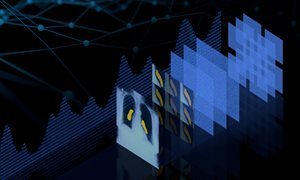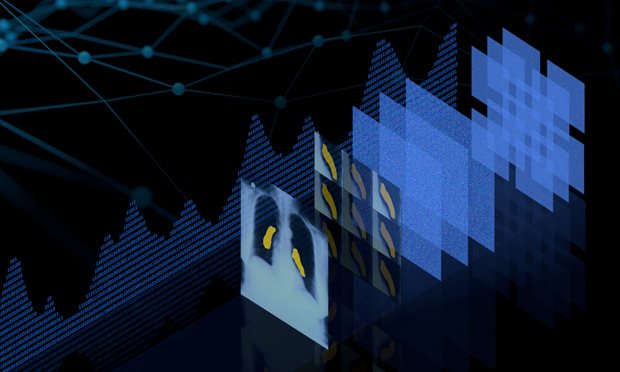

Deep learning Expertise and services
We provide expert guidance and services for big data analysis and deep learning, specifically in the field of image analysis but also on predictive analytics in general.
read moreDeep learning Expertise and services
RTC Deep Learning can provide expert guidance and services for big data analysis and deep learning, specifically in the field of image analysis, but also on predictive analytics in general.
Areas of expertise:
- Medical image analysis
- Development of deep learning algorithms
- Docker and (cloud-based) GPU solutions
- Web-based image analysis and viewing applications
- Research software engineering
- Challenges in biomedical image analysis
- Reader studies for annotating data sets
For more information on projects visit: https://rtc.diagnijmegen.nl/.
Services & expertise
What is deep learning?
Deep learning is an AI technique that is able to learn complex patterns in large data sets. It uses algorithms that mimic the workings of the human brain, so-called ‘neural networks’.
read moreWhat is deep learning?
Deep learning is an AI technique that is able to learn complex patterns in large data sets. It uses algorithms that mimic the workings of the human brain, so-called ‘neural networks’. Deep learning is especially suited to recognize patterns in (medical) image data, for example to help in diagnostics. But also in other medical areas where large amounts of data are available, such as genetics, temporal monitoring or large texts (patient records), deep learning can greatly enhance your research or clinical practices. For examples of deep learning applications in healthcare visit: https://rtc.diagnijmegen.nl/.
Our services
- Consultation regarding the use of deep learning for specific research questions.
- Development and training of deep learning algorithms for detection, classification and segmentation problems.
Our services
- Consultation regarding the use of deep learning for specific research questions
- Assistance with data preparation and annotation
- Development and training of deep learning algorithms for detection, classification and segmentation problems
- Development of web-based applications for data processing and viewing
- GPU computing solutions
- Courses on how to use SOL, deep learning, coding in Python, general courses for students for Radboud AI for Health, courses on programming skills for Radboudumc researchers and external clients
- Support MSc students and visiting researchers
- Designing, organizing and setting up challenges on grand-challenge.org
- Designing, organizing and setting up reader studies on grand-challenge.org
AI for Health
Our technology center coordinates the Radboud AI for Health initiative, a completed ICAI lab, which offers courses for professionals, MSc student projects and PhD projects.
visit websiteHardware & Software
Grand Challenge
We develop and maintain grand-challenge.org, a website for hosting challenges in biomedical imaging, annotating data and making deep learning models accessible to clinicians.
read moreCirrus Core
For many applications, visualization of your algorithms results is crucial. For this purpose we developed Cirrus Core, a visualization software based on MevisLab that allows for 2D and 3D viewing of medical image data. read moreCirrus Core
For many applications, visualization of your algorithms results is crucial. For this purpose we developed Cirrus Core, a visualization software based on MevisLab that allows for 2D and 3D viewing of medical image data.
The results of your algorithms can easily be added as an overlay, e.g. segmentations of anatomical structures, providing a visual aid for researchers and clinicians to interpret their algorithms.
SOL
RTC Deep Learning has set up a high-performance deep learning infrastructure called SOL. SOL offers researches access to a centralized pool of high-power general purpose graphic processing units (GPUs). It is used to create state-of-the-art tools for detecting and classifying illnesses and quantify extent and identify possible treatment options for diseases.
The GPU cluster consists of 40 compute nodes that give access to a pool of 100 GPUs (mainly NVIDIA GTX1080Ti and RTX2080Ti cards), a dedicated 500 TB storage server for serving data to deep learning compute nodes using 20 GBit networking, and an advanced monitoring solution to monitor the activity and health of the cluster.
-
Henkjan Huisman associate professor associate professor/Research Group Leader
-
Colin Jacobs associate professor associate professor
-
Geert Litjens hoogleraar
-
Silvan Quax medewerker RTC deep learning




